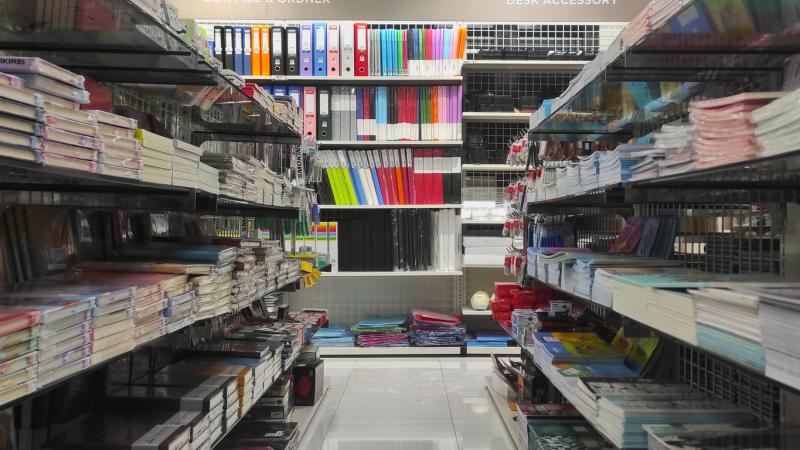As businesses strive to be more sustainable, what practical steps can we take to create greener workplaces? To help answer this, we’ve focused on three key areas where offices can make an impact: Office Supplies, Food and Drinks, and Office Culture.

Mala Persaud from Trace, the Zero Waste Store, a Green Business Leader, emphasizes the importance of reducing plastic waste: “We must turn off the tap on plastic waste.” Office managers can take responsibility for the supplies that are being ordered. Try to reuse items already available— Find the pens, scissors, pencils that are in the office and floating around your junk drawer at home before ordering new supplies. Small changes can add up to a big footprint.
When purchasing new items, prioritize reusable, sustainable, and recyclable options, but always remember — reduce comes first. Don’t forget electronics, either. Items such as ink cartridges, toner, computers, and printers can often be recycled or donated. Fairfax County offers E-cycling stations for proper electronic waste disposal.

Office kitchens and break rooms also play a role in sustainability. Start with coffee—an office staple. Providing reusable mugs is an easy first step that can reduce waste and save money on disposable cups. For a more significant impact, consider eliminating single-use K-Cups, which generate substantial plastic waste and are difficult to recycle. Instead, opt for reusable coffee pods or alternatives like French presses, drip coffee machines, or instant coffee.
When it comes to snacks and meals, Persaud makes the point that eating healthy for your body goes hand and hand with eating healthy for the planet. Natural options like fruits and vegetables are not only healthier for employees but also fully compostable. Consider offering healthier, more sustainable snack options or hosting monthly potlucks or catered meals featuring locally sourced foods.
Monster Organics, a Green Business Partner, offers composting and recycling services for hard-to-recycle items, making it easier for businesses to minimize food waste.

A truly sustainable office starts with a culture shift. One way to foster this is by creating a Green Team — a group of employees dedicated to promoting eco-friendly practices. Green Teams can educate colleagues, drive decision-making, and help identify areas for improvement such as procurement, transportation, energy use and culture changes.
- Transportation: Encourage alternative commuting methods by offering public transportation incentives, carpool programs, or telework options. Check out Fairfax County Commuter Services for information on alternative commuting in Fairfax County. Many Green Business Partners have been recognized for their efforts as Best Workplaces for Commuters.
- Energy Conservation: Simple changes, such as setting thermostats to be a little warmer in the summer and cooler in the winter and adjusting thermostats and lights during off-hours, can make a big difference. Read on to learn why it’s worth it to adjust your thermostat by a couple degrees with Fairfax County's Two-Degree Challenge.
- Culture Changes: You may also consider adopting a more flexible dress code. Persaud reminds us that a lot of business attire is non-natural fibers, often coming ultimately from plastics. It also requires dry cleaning which has environmental impacts. Also, consider how to conduct green meetings, reducing waste and transportation impacts.
You can find more resources about Sustainable Business Practices on our website. If your business is taking steps to lower your carbon footprint, think about applying for a third-party certification such as ISO 14001, ISO 0001 or B Lab. These certifications can both lower your carbon footprint and increase your appeal to customers.
Creating a greener workplace doesn’t necessarily require a massive overhaul—just a series of intentional, practical changes. These simple steps can reduce your office’s environmental impact while fostering a culture of sustainability.
What steps has your office taken to go green? Share your ideas with us at greenbusiness@fairfaxcounty.gov to inspire even more sustainable workplaces! We’ll highlight some of the best ideas in future newsletters.
Special thanks to Mala Persaud from Trace, the Zero Waste Store, a Green Business Leader, for her contributions to this article.

